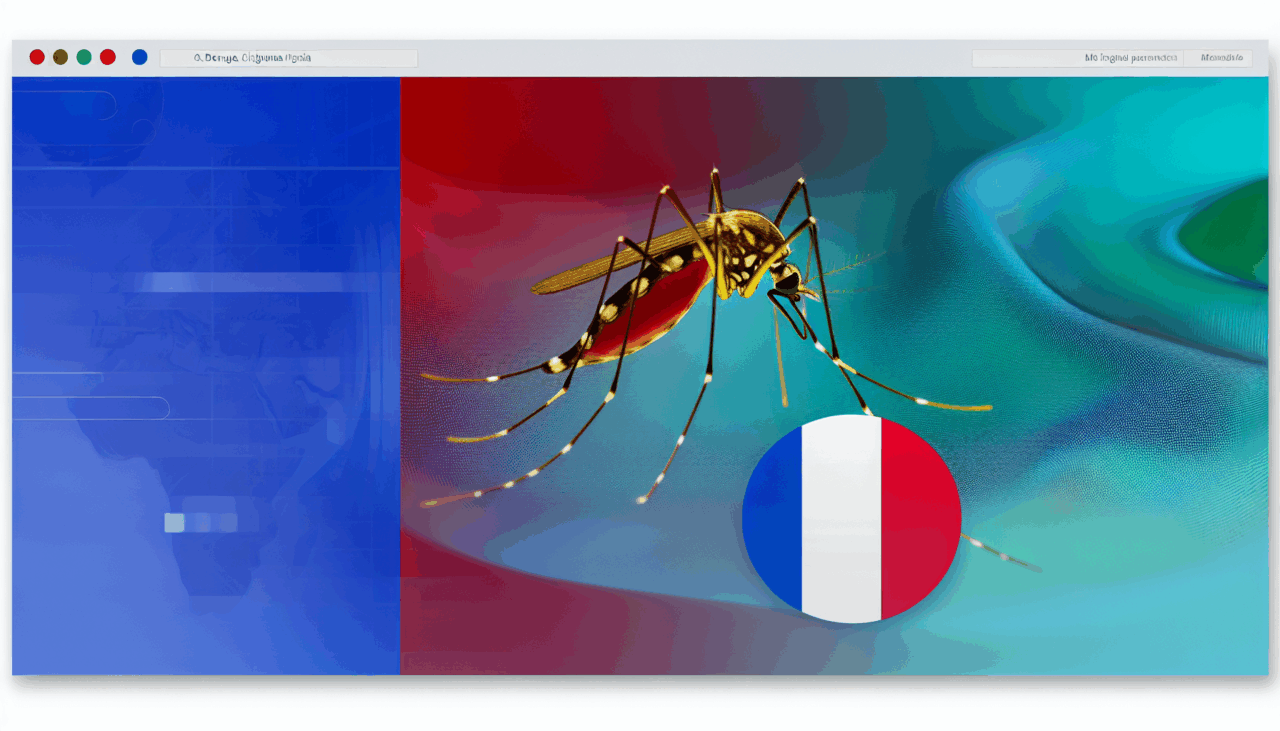As of July 15, 2025, France has identified 13 episodes of local transmission of chikungunya and dengue. These cases are primarily concentrated in the southeastern regions of the country, which have been affected in previous years. However, for the first time, cases have also emerged in the Grand Est and Nouvelle-Aquitaine regions. According to Santé publique France (SpF), the number of transmission clusters highlights the significant risk of local transmission of these viruses in mainland France.
Current Status of Arbovirus Cases in France
By mid-July, Santé publique France (SpF) reported 12 episodes of local chikungunya transmission, totaling 30 cases. These cases are located in the Provence-Alpes-Côte d’Azur, Corsica, Occitanie, Auvergne-Rhône-Alpes regions, and for the first time, in Grand Est and Nouvelle-Aquitaine. The onset of symptoms ranged from May 27 to July 9. On average, episodes were identified seven days after the first case’s symptom onset, with a range of 1 to 25 days. Most episodes involved fewer than five cases, but in Salon de Provence, the largest cluster so far, 13 cases were identified, including two in neighboring towns Grans and Lambesc. SpF notes that for at least four episodes, imported viremic cases from La Réunion were identified near the clusters and are likely the source of local transmission, based on genetic analysis.
The 13th episode involves dengue, marking the first occurrence for 2025, identified in Auvergne-Rhône-Alpes with symptom onset on July 1. To date, only one case has been identified.
Importance of Reporting and Preventive Measures
Given these figures, Santé publique France emphasizes the importance of reporting cases to enable rapid intervention to limit transmission, as well as the significance of protective measures against mosquito bites and controlling larval habitats.
Imported Cases and Enhanced Surveillance
Between May 1, the start of enhanced surveillance, and July 15, 2025, SpF recorded 581 imported dengue cases, 799 chikungunya cases, and one Zika case.
Enhanced Surveillance Measures (May 1 to November 30)
Detection of a dengue, chikungunya, or Zika case triggers epidemiological and entomological investigations to quickly implement vector control measures and limit local virus transmission. When a local case is identified (a person who has not recently traveled to a virus circulation area and was infected locally), vector control measures are intensified with two adulticide treatments within an expanded 300-meter perimeter. Human-origin product security measures are implemented following recommendations from the Haut Conseil de la Santé Publique. Active case finding is also conducted around local case clusters to determine the extent of local transmission and adjust the vector control treatment perimeter if necessary. This active search is carried out jointly by SpF and the relevant regional health agencies. It involves raising awareness among healthcare professionals in the affected sectors and the general population, as well as door-to-door surveys in the vicinity of known cases to identify potential additional cases. Appropriate security measures for human-derived products (blood, transplants, etc.) are also implemented.
Follow Medscape in French on Bluesky, Facebook, Instagram, LinkedIn, and YouTube.
Subscribe to Medscape newsletters: select your choices.
Quiz: Emerging Arboviruses in Europe
Chikungunya: A First Vaccine Available in France
Dengue, Zika, Chikungunya: Preparing for Them in Mainland France
Image credit: Dreamstime
Medscape News © 2025 WebMD, LLC
Cite this article: Mid-July Update: Dengue, Chikungunya, and Zika Transmission in France – Medscape – July 18, 2025.
Stéphanie Lavaud has no conflicts of interest related to this topic.
🔗 **Fuente:** https://francais.medscape.com/voirarticle/3613124

